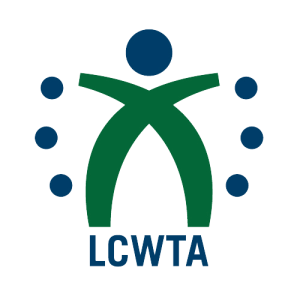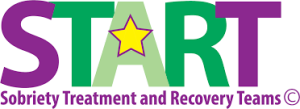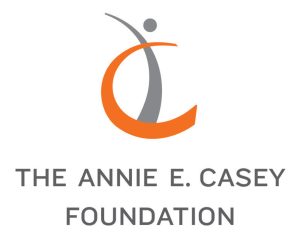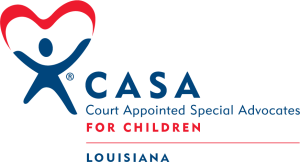Contact Us
For Any Questions, Please Email Us:
support@pelicancenter.org
Upcoming Events
- Tags ABA Abuse Academy accommodations ACEs Act 378 Activist ADA ADD ADHD adolescent development Adolescents Adoption adoptive parents adult educators Adults with Disabilities Adverse Adverse Childhood Experiences Advocacy Advocate advocay Affirming Placements African American Youth African Americans Agenda for Children Algorithms allied fields Alternative Residential Placements AMCHP american bar association American Indian Americans with Disabilities Act and early childhood and mental illness Annie E Casey Foundation Anti-discrimination Anti-Social Behaviors Antiracism Anxiety Anxiety Disorders APHA APSAC ARP Art Art Therapy ASD Assessment Assessment Tools assistant district attorney At-Risk At-risk Youth Attachment Theory Attorney Attorneys Autism Awareness Back to School Barriers Baton Rouge Behavior Health Behavioral Health Bench Cards Benchbook Best Practices Beth Tyson Trauma BGC Attorneys Bias Birth Parents Black Children Black Families Black Girls Black Male Black Males Black Maternal Health Week Boundary brain development Buddy Books Bullying Bureau of Family Health CAC Calming CAN CAPTA Care for Children caregiver Caregivers CASA Case Coordination case plan CCIP Center for Indigenous Health at Johns Hopkins University CEU Challenging Behavior chidlren Child Child Abuse child abuse and neglect child abuse prevention Child and Families Child Behavior Child Development Child Education Child Exploitation Child in Need of Care Child in Need of Care (CINC) Child Maltreatment child neglect Child Physical Abuse Child protective services Child Safety Child Sex Abuse Child Sex Trafficking Child Sexual Abuse Child Sexual Abuse Prevention child socialization Child Trend Child Trends Child Victims Child Welfare Child Welfare Assessment and Decision Making Model Child Welfare Court Child Welfare Information Gateway Child Welfare Law Child Welfare Law Specialist Child Welfare Policy Child Welfare System Child Welfare Virtual Expo 2024 child welfare workers Child Well-Being Child Wellbeing Childhood Adversity childhood Development Children children development children of color children with disabilities Children's Advocacy Children's Advocacy Center Children's Attorney Children's Attorneys Children's Cabinet Children's Code Children's Justice Act Children's Law Children's Rights children's trust fund Children’s Bureau Children’s Justice Task Force childs rights CHIP CINC CINC Trial Skills CIP CIP Cafe city leaders Civil Services Classroom classrooms CLE clinicians CMWS CNLI Co-Parenting Coalition for Juvenile Justice Coffee and Conversation Collaboration Communication communication Disorders Communication Skills Communities Community Community Outreach Compassion Complex Challenges complex trauma Conference Confidentiality Conflict Resolution Congregate Care Connecting Principles Continuum of Care Coordinating Council on Juvenile and Delinquency Prevention Copping Skills Court Court Appointed Special Advocates Court Improvement Program Court Staff Courthouse Security Courts Covid 19 Crisis Plan Critical Thinking Crossover Youth CSAM Cultural Competencies cultural consciousness Culture CWADM CWLA CWLS CWVE Cybercrime dads Data DCFS deaf Dear Black Male Decency Delinquency delivery Department of Education Department of Justice Depression development and behaviors Developmental Disabilities Difficult People Digital Dialogue Disabilities Disability Rights Louisiana Disabled Parents Disaster Preparedness Disorders Disparate Outcomes Disproportionality Disproportionality and Poverty Dispute Resolution district attorney District Attorneys Diversity Domestic Abuse Drug abuse Drug Courts Drug Testing Drug use Drugs Dyslexia Early Childhood Early Chilldhood Early Education Early Intervention EarlySteps Eating Disorders Eating Healthy ECE Economic Supports Education Education Program Educators Employment empowered fathers Empowering Engagement engaging dads Equality Equity ESY Ethics Ethnicity Every Student Succeeds Acts Evidence Evidence Corroboration Exploitation Extended Foster Care Extended School Year Services Faith-based faith-based leaders Families Families helping families Family Family & Youth family center Family Consiltants Family Court Family Dynamics Family Focus Family Health family law Family Preservation Family support Family Treatment Court Family Unification Month family violence Family Visitation family well being FASD Fatherhood Fathers FEMA Fetal Alchohol Spectrum Disorder Fetal Alcohol Spectrum Disorders FFTA FHF Financial Stability FINS FNF Forensic Interviewing Foster Care Foster Care Community foster child Foster Children Foster Parent Foster Parent Classroom Foster Parents Foster Youth FPT FPTM FTC FTM Fundraisers Gangs Gay Parents Gender Expansive Youth general education classroom generatins Generation United Generations United Georgetown University Law Center Girls Girls of Color' Grandfamilies Grandparent grandparents Grandparents Raising Grandchildren Grantees grants Grief Guardianship Gun Violence HCBS he Community Outreach Specialist Health health care Healthy Behaviors High Risk High Risk Youth High School Historical Racism Historical Trauma Holidays Homelessness Housing Stability Human Resources Human Trafficking IAP ICAC Task Force icpc ICWA IDEA identity factor IEP IEP meeting Immigration Implicit Bias Incarcerated Parents Incarcerated Youth Incarceration Incarerated Parents including perinatal depression Inclusion Inclusive Indian Child Welfare Act Indigenous People Indigent Defenders Individual Transition Plan (ITP) Individualized Education Plan Individuals with Disabilities Education Act Inequality infancy infants Infants and Toddlers Innocent Justice Foundation Intellectual Disability Intentional Integration Intergenerational Internet Crime Internet Crimes Internet Crimes Against Children Internet Safety Intervention Interviewing Investigation Jail Jobs Judge Judges Judicial Justice and Joy national Collaborative Juvenile Court Juvenile Justice Juvenile Justice and Delinquency Prevention Act Juvenile Law Juvenile Sex Trafficking Kinship Kinship Care Kinship Caregiver Kinship Navigator LA Policy Institute for Children LaCAN LADBP Language Disorders Latoya Butler Law law enforcement lawyer LCTF LCTF Caucus for Children LCTF Caucus for Children - Statewide Meetings LCWTA leaders leadership Learning Learning in Higher Education Legal Legal Advocacy legislative services Legislative Update LGBTQ LGBTQ2S+ LGBTQIA+ Loneliness Loss of Parent or Caregiver Louisiana Louisiana Bar Foundation Louisiana Children's Code Louisiana Children's Trust Fund Louisiana Department of Education Louisiana Department of Health Low Income LRS LSU LWCTA Maltreatment Mandated Reporter Responsibilities Marginalized Youth Maternal Employment MCC MDT Medicaid medical Medication medice medicine Meetings Mental Health Mental Health Alliance mental health screening Mental Heath Mental Wellness Mentee Mentor Mentoring Mentoring Programs Mentors MicroAggressions Mindspring Minorities Missing Children Mitchell Hamline School of Law Moodle Mothers Motions Multi-Disciplinary Team Multidisciplinary Teams Music My Community Cares My Life My Chioce NAA NACC National National Center on Substance Abuse and Child Welfare National Child Welfare Workforce Institute National Criminal Justice Training Center; Fox Valley Technical College; Office of Juvenile Justice and Delinquency Prevention (OJJDP) National Family Treatment Court Program National Federation of Families National Gang Center National IV-E Roundtable National Tribal Native American NCCAN NCFA NCJFCJ NCJTC NCSACW NCSMH NDAA Neglect Network Networking Neurodiversity NFF NICWA NOLA C.A.R.E.S. Non-Profit nonprofit and civic organizations Nonprofits NTACT NTTAC Nurses nursing nursing law nxiety Disorders OAYI OCD OCDD Office of Juvenile Justice and Delinquency Prevention Office of Juvenile Justice and Delinquency Prevention (OJJDP) OFR OJJDP Online Networking OPD opioid Oppositional Defiant Disorder Oppression Order of the Court ORPC Othermothers Outcomes OVC Overmedication Pandemic Parent Attorneys Parent Child Interaction Therapy Parent Child Interaction Therapy (PCIT) parental substance abuse Parentig Parenting Parenting Education parenting educators parenting practices Parents Peer Support People First Language People with Disabilities perinatal loss Perinatal Mental Health Permanence Permanency Permanency & Well-Being Permanency and Well-Being personal growth Personality Disorders philanthropy Physical abuse physical disability Planning Planning Tools PMH POC Policy pornography Law enforcement Positive Behavior Management Positive Relationships Positive youth development Post Covid Post Secondary Service Poverty Practice Practice Academy pregnancy Prenatal Substance Exposure Prescription Drugs Preventing Adversity Prevention Prison Privacy Professionals Promising Futures Prosecution Prosecutors Protective Factors Psychiatric Medication PTSD Public Defenders Public Health Punishment Putting People First QPI Quality Improvement Race Racial Racial Disparity Racism RAISE Raise the Age RAPT Rasicm Reasonable Efforts Recovery Regulating Complex Emotions Relationships Relias Research Resilience Resiliency Resources Rights Risk Risk Assessment RTA Runaway Rural Safety Safety and Well-Being Safety Kinship safety plan Samhsa's Gains San Diego International Conference School School Based Schools Secondary Traumatic Stress Section 504 self-advocacy Self-care Self-Esteem Series Sex Trafficking Sextortion Sexual Abuse sexual orientation sexual violence sibling aggression Sobriety Social Justice Social Skills social work Social Worker Social Workers SOE Southwest LA Southwest Louisiana SPAN Speaker Series Special Education Special Needs Stakeholder START Stigma Stop Bullying Straregies Strategies strategy Strengthening Families Stress Student students Students with Disabilities Substance Abuse Substance Abuse Disorder Substance Abuse Exposed Infants Substance Misuse Substance Use substance use disorder SUDs Suicide Suicide Pevention supervision Supplemental Poverty Measure Support Support Group surveillance Systemic Racism Task Force TBRI TBRI Connecting TBRI Correcting TBRI Empowering TBRI Intro and Overview Teacher Union Teachers Team Dynamics teamwork technique Technology Teen Dating Teenage Parents Teens Testing The 7 P’s Exercise The Arc The National Multidisciplinary Parent Representation Conference The Opioid Affected Youth Initiative the Rehabilitation Act therapy Tiered Waiver Title IV-E tools Trafficking trainer Trainig Training Transgender Transition Transitioning Transracial Children Trauma Trauma Center Trauma Focused Cognitive trauma history Trauma-Informed Trauma-informed Practice Trauma-Responsive traumatic experiences Traumatic Stress Traumatized Children Trial Skills Tribal Trust-Based Relational Intervention U.S. Department of Health and Human Services U.S. Department of Justice U.S. Office of Justice Unaccompanied Unemployment Unsafe UST Victims Victims of Technology-Facilitated Crimes Violence Violence Against Children Violence prevention Virtual volunteers Voting Rights Waivers Webinar Welcome2Reality Well Being Wellness Weninar Whole Health Louisiana Women Women United of Southeast Louisiana Worker Recognition Workforce Development workplace development Workshop YJAM Young Adult Young Child Young Girls Youth Youth Health Youth Justice Youth Mental Health youth programs Youth Protective Factors Youth PTSD

CWLA is pleased to present the three-part virtual training series that features the publication Working with Traumatized Children – A Handbook for Healing. Now in its third edition, Working with Traumatized Children has been updated to include new strategies and approaches for caregivers and others responsible for meeting the needs of children who are vulnerable.
Participants will gain a strengthened capacity to:
- Define what trauma is and differentiate it from stress
- Provide examples of trauma symptoms in children and adults
- Describe how trauma can impact children’s brains
- Advocate for the provision of safe environments when working with children and adults who have been affected by trauma
- Provide examples of how systems can be traumatizing or retraumatize people
- Explain the importance of understanding the vagus nerve when working with families and children who have been affected by trauma
- Express why self-reflective practices and supervision are important when working with this population
Training registrants will receive an electronic copy of Working with Traumatized Children, Companion Workbook which supplements the virtual training sessions. Training registrants are also eligible to receive a 30% discount on the purchase of hard copies of Working with Traumatized Children – A Handbook for Healing, Third Edition and Working with Traumatized Children, Companion Workbook. Use promo code WWTC-30 in CWLA’s Bookstore.

CWLA is pleased to present the three-part virtual training series that features the publication Working with Traumatized Children – A Handbook for Healing. Now in its third edition, Working with Traumatized Children has been updated to include new strategies and approaches for caregivers and others responsible for meeting the needs of children who are vulnerable.
Participants will gain a strengthened capacity to:
- Define what trauma is and differentiate it from stress
- Provide examples of trauma symptoms in children and adults
- Describe how trauma can impact children’s brains
- Advocate for the provision of safe environments when working with children and adults who have been affected by trauma
- Provide examples of how systems can be traumatizing or retraumatize people
- Explain the importance of understanding the vagus nerve when working with families and children who have been affected by trauma
- Express why self-reflective practices and supervision are important when working with this population
Training registrants will receive an electronic copy of Working with Traumatized Children, Companion Workbook which supplements the virtual training sessions. Training registrants are also eligible to receive a 30% discount on the purchase of hard copies of Working with Traumatized Children – A Handbook for Healing, Third Edition and Working with Traumatized Children, Companion Workbook. Use promo code WWTC-30 in CWLA’s Bookstore.

What is race? What is racism? How do these concepts influence people’s perceptions of themselves and others? How has racism impacted the implementation of policies and procedures across our socio-economic systems?
This three-part training session explores these and other questions to understand the ways racism impacts socio-economic systems. Participants will learn about the origins of racism and engage in discussions about its four levels: internalized (within individuals), interpersonal (between individuals), institutional (within institutions), and structural (across institutions and society). They will review examples of each and evaluate how the practices of specific institutions – child welfare, education and criminal justice, to name a few – perpetuate disparate outcomes for impacted populations. Participants will also go on a historical journey from slavery and segregation to the violence, mass incarceration and voter suppression, to understand how internalized, interpersonal and institutional racism combine to create power structures that advantage some, while disadvantaging all others.
Through this historical perspective, participants will be challenged to evaluate the racist policies and practices that persist in their fields of work, and to start discussions about dismantling systems of oppression so that equity, inclusion and justice can prevail.

Parenting is challenging, particularly when you are parenting a child from a hard place. TBRI ® Empowering Principles will provide an in-depth look at ways to empower your children by meeting their unique physical needs and creating an environment in which they can succeed. This session includes information on sensory processing and practical tools and skills to help children regulate their emotions and behaviors. This multi-disciplinary training is designed to give caregivers, volunteers, and professionals who serve children and families the knowledge and practical skills they need to bring hope and healing.

Participants in the workshop will:
- Understand trauma-informed care principles
- Become familiar with START’s new drug testing standards for parents in child welfare that are grounded in trauma-informed care principles
Become trauma-informed in approaching parents who have substance use challenges
Presenters
START experts Tina Willauer and Lynn Posze—along with panelists from START affiliates

Youth advocates, service providers and community leaders: Are you frustrated by the negative narratives about young people? Thriving Youth: Messaging Strategies to Encourage a Brighter Future for Young People, an upcoming webinar hosted by the Annie E. Casey Foundation, offers guidance on how to leverage data and messaging to compose positive, asset-framed narratives about young people. Recent research commissioned by the Foundation shows that the public remains inclined to support youth development, including many preventative interventions. Data indicate that positive and warm parent-youth relationships help children grow up healthy and with skills to succeed in school. Outside of parents, schools, mentors and youth programs that offer young people constructive activities like sports, arts and employment opportunities lead to reduced risks and better outcomes. Young people can thrive if adults and communities invest in them and their futures.
Executive directors and staff of youth-serving organizations, particularly those supporting the young people with the most barriers to success, are struggling to overcome damaging stereotypes about youth. They encounter inflammatory and frequently exaggerated coverage of crimes committed by young people — often reinforced by media. On their own, factual data about crime trends are not helping to correct misperceptions surrounding youth and their realities. A concerted storytelling and persuasion effort in the media and within communities is required to neutralize harmful assumptions and influence policies and practices.
This one-hour session will offer people in youth-serving organizations — especially those with public-facing roles — data-driven strategies to shift harmful narratives, including:
- understanding public perception about young people’s challenges and potential;
- learning asset-based frames and messages about what helps youth thrive, including the opportunities, guidance and connections to positive adults that local youth-serving organizations provide; and
- discovering how to bolster positive storytelling about young people to counter pervasive negative narratives.

Promoting Positive Change in Communities by Confronting Poverty
Louisiana CASA is excited to host our third webinar series. This series is brought to you in partnership with the Louisiana Children’s Trust Fund so we are required to ask participants certain demographic questions during registration. Once you register, an email will be sent to you that includes the link to join the webinar. We hope to see you there!
Promoting Family Economic Well-Being Beyond Poverty
Child poverty is rooted in decades-long trends of economic hardships among families across the nation. From the grassroots movement of United Ways, measures of financial hardships have emerged through the measurements of ALICE (Asset Limited, Income Constrained, Employed). Join us in discovering the impacts of United Ways’ data collection and the ALICE movement that promotes well-being for families beyond poverty.

Supervisors play a pivotal role in shaping a resilient and thriving workforce. Without the right tools and strategies, the demands of behavioral and community healthcare leadership can lead to burnout and high turnover, negatively impacting organizational success.
Join the Child Welfare League of America (CWLA) and Relias on March 5 at 2 PM ET for an insightful webinar on how effective supervision can transform your organization. Learn actionable strategies and proven practices to empower supervisors, reduce burnout, and foster a more engaged and productive team.
Guided by CWLA’s 4 A’s framework, this webinar will focus on:
- Awareness: Recognizing the unique challenges supervisors face in their roles
- Acknowledgment: Viewing supervision as a space for growth and self-reflection
- Action: Implementing strategies to create a positive and collaborative work environment
- Accountability: Building shared responsibility to empower and support staff effectively

The program consists of nine 2 hour sessions. Applicants must register for the entire 9-week program. The training program will offer participating professionals the opportunity to acquire or enhance the competencies, skills and insights necessary to effectively work with children and families in the child welfare system. Please see course descriptions and course presenters below. All nine courses will be led by national experts in the field of child welfare and child maltreatment.
Event Details Coming Soon!
March 5th: Block Physical Abuse: Solutions presented by Stacie LeBlanc, JD, MEd, FAPSAC
March 12th: Baffling, Bizarre, Beyond Belief Child Abuse Cases presented by Debra Esernio-Jenssen, MD, FAAP & Barbara Knox, MD
Resources
(FRIDAY) March 21st: Bogus Physical Abuse: Mimics of Maltreatment presented by Michelle Greene, DO
Resources
March 26th: Brains: Abusive Head Trauma presented by Randell Alexander, MD, PhD
Resources
April 2nd: Burns: Pediatric Burns and Their Medical Mimics in Child Maltreatment presented by Lauren Burge, MD
Resources
April 9th: Bull: Medical Child Abuse: Detecting, Surviving and Healing from Unprecedented Bull presented by Rebecca Gill, MD, Jordyn Hope & Brian Fleming
April 16th: Bones/Fractures presented by Dr. Adrienne Atzemis
April 23rd: Brains and Backlash: Medical Diagnosis, Legal Controversies, and Prevention Strategies for Abusive Head Trauma presented by Vincent J. Palusci, MD, MS, FAAP, FAPSAC
Resources
April 30th: Bruises and other Boo-Boos: Skin Injury presented by Dr. Adrienne Atzemis

